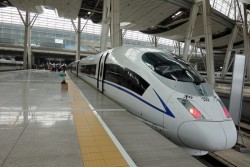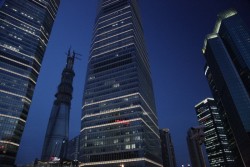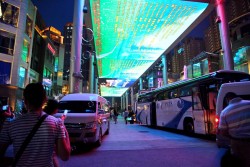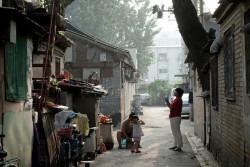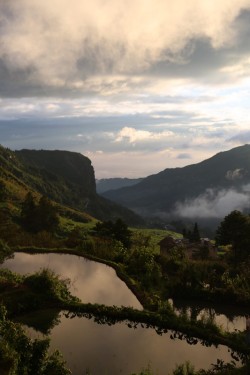Eight years ago while trekking through the jungles of southwestern China, near the border of Myanmar, I remember being overwhelmed by the generosity of the people I met from the local villages. I was always warmly taken in, housed and fed by complete strangers from the compassion of their hearts. But revisiting this time, I found government built mock villages in their place. Gimmicky tourist shops were built to resemble traditional homes, and “authentic ethnic minority cultures” were on display in various forms for other Chinese tourists coming to snap a quick picture of this so-called real China. Some villagers now exploit themselves and their heritage by performing “traditional” ethnic dances for busloads of Chinese tourists - all in order to sustain their livelihood and receive a portion of the government profits made on selling them as an attraction.
Eight years ago, I watched the China that I loved slowly pass by the train windows as I left Yunnan. The lush mountain scenery, speckled with farmers’ huts slowly gave way to small towns with humble concrete homes and produce markets, and progressed towards office buildings, high rises and skyscrapers as I arrived back in Shanghai. If the passing scenery of that train ride was a metaphor for the progress China was experiencing, then it all made sense. There was still authenticity in the ancient towns and warmth in the smiles and waves by villagers we were passing by. Back then, I could see how the farmers supported the markets and the towns supported the cities and so on.
But today, following almost the same route on a high speed bullet train at over 300 kilometers per hour, nothing made sense. The China of today is hardly recognizable to that of what I once knew. Travelling 4 times faster than before, my eyes were in shock and fear of what I saw. Cranes and bulldozers stood in the place where farming villages once were, building entire cities in their place. There were high-rises everywhere. Even in the midst of the remote deserts in western China, giant ghost cities have been built in anticipation of the future, with hundreds of thousands of brand new apartments clustered in cities that have no occupants. Outside of Beijing, one such ghost city covers over 13,000 acres, with a five-star hotel, hot springs, golf course, museum, temple, two universities, mall, entertainment facilities and luxury villas - all standing completely empty and unoccupied. Over a dozen provinces within China have also erected one such ghost city and the government’s desires are becoming clear: prepare now for future economic development…all at the expense of their own culture and people.
It’s the people and culture that is becoming the commodity of China. Five hundred year old hutongs (ancient Ming dynasty style neighborhoods) are being demolished to build the skyscrapers of tomorrow while family after family are being displaced. With no real individual property rights in China, these families must decide to either join the forces of modernization or be leftto a bleak and dismal future.
This is the reality of modern day China and it seems like the government is placing all bets on a future at the expense of their past. With state run television showing endless propagandist commercials (encouraging its citizens to travel and spend money in their own country), has their economic freedom of today just morphed into a different type of Maoist following from yesterday? I can’t help but wonder what the people of China would voice about their own changing society, if they could do so openly, without fear of persecution. With anyone opposing the government quickly silenced, jailed or worse - what are your options as a citizen of this country but to either silently abide, embrace the same values and agenda of the government (money, progress, power), or risk what little freedom you already have left? And what will the future of this 6,000 year old culture be – when its government has all but abandoned its core values to put its hope on being the next world economic power?



